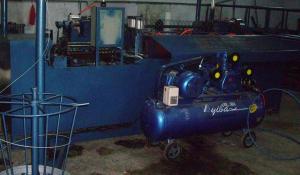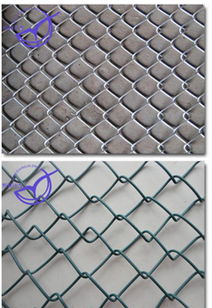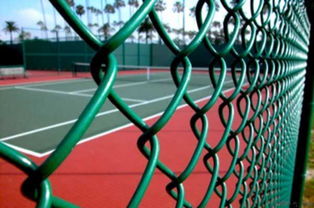DIY Chain Link Fence: A Comprehensive Guide
Are you looking to enhance the security and aesthetics of your property? Installing a chain link fence can be a cost-effective and versatile solution. In this detailed guide, I’ll walk you through the entire process of DIYing a chain link fence, from planning to completion. Whether you’re a seasoned DIYer or a beginner, this guide will provide you with the necessary information to tackle this project with confidence.
Materials and Tools

Before you start, it’s essential to gather all the necessary materials and tools. Here’s a list of what you’ll need:
| Material | Quantity |
|---|---|
| Chain Link Fence Panels | Depends on the length and height of your fence |
| Posts | Depends on the spacing and length of your fence |
| Post Caps | Depends on the number of posts |
| Galvanized Nails | Depends on the number of panels and posts |
| Post Hole Boring Machine | 1 |
| Level | 1 |
| Hammer | 1 |
| Drill | 1 |
| Screwdriver | 1 |
| Post Level | 1 |
| Clips | Depends on the number of panels |
Make sure to purchase high-quality materials to ensure the longevity of your fence. It’s also a good idea to have extra materials on hand in case of any mistakes or damage during installation.
Planning and Design

Before you begin, it’s crucial to plan and design your fence. Consider the following factors:
- Size and Shape: Determine the length and height of your fence, as well as the shape (rectangular, circular, etc.).
- Location: Choose a suitable location for your fence, ensuring it complies with local regulations and property lines.
- Gate Placement: Decide where you want to place the gates and ensure they are easily accessible.
- Privacy: If privacy is a concern, consider adding a privacy screen or lattice to the fence.
Once you have a clear plan, mark the boundaries of your fence on the ground using stakes and string. This will help you visualize the layout and ensure accurate installation.
Excavation and Post Installation

Excavation is a critical step in the installation process. Follow these steps:
- Excavate Post Holes: Use a post hole boring machine to create holes for your posts. The depth and width of the holes should be based on the size of your posts and local soil conditions.
- Set Posts: Place the posts in the holes and use a level to ensure they are perfectly vertical. Backfill the holes with soil and compact it firmly around the posts.
- Install Post Caps: Place post caps on top of the posts to protect them from the elements and add an aesthetic touch.
Make sure the posts are evenly spaced according to your fence design. This will ensure a uniform and stable fence structure.
Panel Installation
Now it’s time to install the chain link fence panels:
- Attach Panels to Posts: Place the panels on top of the posts and secure them using clips. Make sure the panels are level and aligned with the posts.
- Adjust Panels: Tighten the














